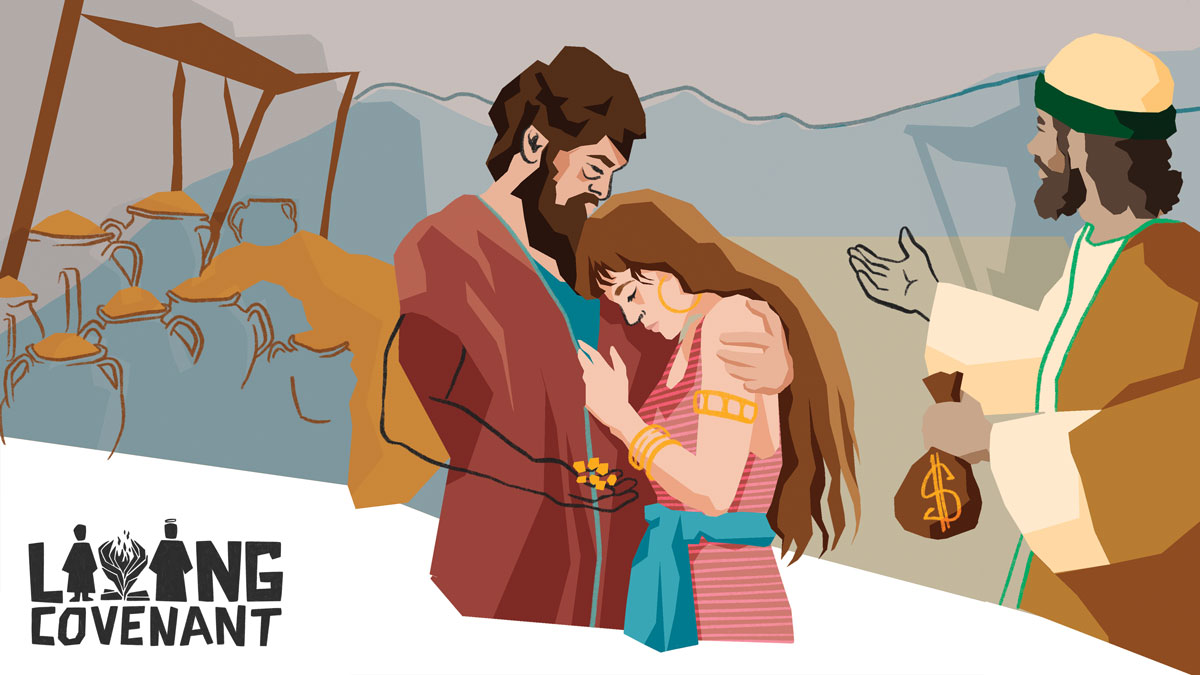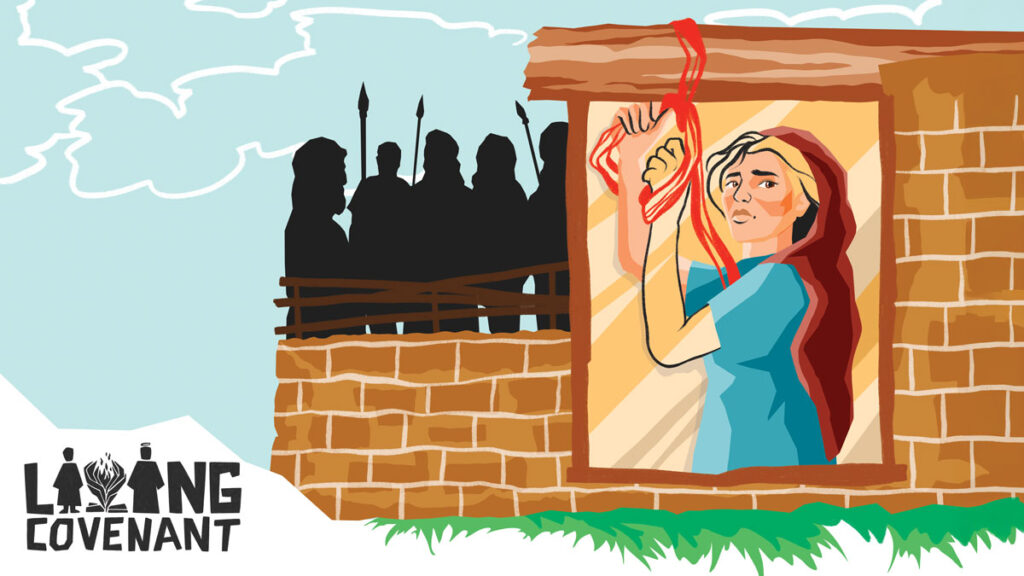I’ll be honest, my experience finding love hasn’t been easy. I didn’t marry my childhood sweetheart or find my spouse at college. And while I’m happily in a relationship now, my journey hasn’t come without difficulty.
For someone who is quite accident-prone, nothing prepared me for the pain heartbreak would bring. I’ve had my arms in casts, lost skin to the bone and obliterated my teeth on concrete. I’ve seen lives lost to sudden tragedy, loss of hope and old age. I’ve walked through slums and seen poverty and corruption fall on innocent children. But heartbreak, unlike anything else I’ve experienced, walloped me.
To some, that might sound very dramatic. Maybe you’ve never been there, or maybe you have but comparatively recovered quite quickly. At the time, I even found myself wondering, Is something wrong with me? Though it turns out, I wasn’t alone.
Psychologists say one of the most profound wounds a person can experience is the wound of being rejected. “Heartbreak is one of the hidden landmines of human existence,” says Florence Williams, science journalist and author. “If you place someone who has recently suffered heartbreak through a scanner, you will see parts of their brain light up that are very similar to the parts that light up after receiving a burn or an electric shock.” It can take weeks, months or even years for an individual to move past that pain, and it can have more ripple effects than a physical injury because of how long it can last.1
Among the documented downstream effects of rejection are heart palpitations, increased anxiety, poor impulse control, depression, cognitive decline and altered gene expression.2 For me, it was lack of appetite, fatigue, fragmented sleep, loss of joy and a queasiness in my stomach akin to being at sea in rough conditions—for months.
Then there are the emotional effects that can linger even once the pain has subsided: low-self-worth, attachment issues, a decreased capacity to trust people, hypervigilance to rejection, increased vulnerability to mental health issues, and this can even go on to have intergenerational effects.3

In rare and unfortunate cases, heartbreak can trigger a condition called takotsubo cardiomyopathy, commonly referred to as “broken heart syndrome”. Unlike typical heart attacks, this condition doesn’t involve blocked arteries and can affect individuals who are otherwise well. The heart temporarily stops functioning properly, causing it to balloon in shape, which can result in chest pain, fluid in the lungs, cellular damage and, in rare instances, death.4
We don’t often think of God as someone who has experienced heartbreak. And while I don’t want to project human rejection wounds onto God, rejection is a definitive mark of His story throughout the Bible.
A man named Hosea
750 years before Jesus showed up on earth, God’s love for humanity was displayed through a man named Hosea. Some assume Hosea might have been a baker, others a farmer, but he’s most commonly known as being a prophet who lived in Israel during a time of great prosperity . . . kind of.
While things looked good from the outside, on the inside, the nation was spiritually bankrupt. The people had given themselves over to idolatry and were constantly breaking the Ten Commandments. As a result, severe injustices were occurring in their communities. Hosea wrote that they had “ploughed wickedness”, “reaped injustice” and “eaten the fruit of lies” (Hosea 10:13). They were going to other sacred temples and turning to other gods for answers—all the while still offering sacrifices to God as if nothing was wrong. Their concept of love was convoluted, too. They believed it could be purchased, that it was simply the pursuit of self-gratification, and could be discovered with inanimate objects and material possessions.5
During this time, God gave Hosea a peculiar, slightly embarrassing assignment. He told him he was to be a speaker for Israel. But first, he was to marry a woman named Gomer. While many Bible translations describe Gomer as a prostitute, we don’t know if that is true. The original Hebrew word used to describe her translates to ”promiscuous”. It implies a lifestyle of habitual unfaithfulness rather than a single act of adultery. What is clear is that Gomer had a divided heart, just like the Israelites.6
For better or worse
I can’t imagine how Hosea must have felt marrying her. Weddings are typically one of the happiest days of people’s lives. It’s where couples feel giddy and excited for a future of loving and being loved into their old age. Nobody stands at the altar predicting that their dearly beloved is going to be unfaithful time after time. Yet Hosea did.
For a few years after they got married, things seemed to go okay, and the couple had three children. Until it happened. Hosea woke up, and Gomer was nowhere to be found. God came to Hosea and told him to go find her and pay off her debts to her lovers. “This will illustrate that the Lord still loves Israel, even though the people have turned to other gods and love to worship them” (Hosea 3:1, NLT).
Hosea was well-known by the people of Israel. They thought of him as a holy man, a prophet, a beacon of hope for their nation. In looking for Gomer, he would have gone where men of God were not expected—no doubt stirring suspicion, rumours and judgement.
We read in the story that Hosea had to buy Gomer, meaning she was in some form of slavery or bondage. He had to pay for what was already his, using 15 pieces of silver (likely the equivalent of several months’ wages) and five bushels of barley (their staple food, which could have fed a family for months). Hosea brought Gomer home and cared for her as if she had done no wrong. Yet, even after his merciful response, she continued to be unfaithful. Each time, he would go find her, bring her back and love her as he had vowed to do.
Them and us
In Hosea 11, there’s a poem that paints a picture of God as a loving father who raised His son, Israel, and shared everything with him. However, as the son grew up, he rebelled and turned against the father, taking advantage of His kindness and generosity. In the poem, God is an emotional wreck. One moment He is filled with anger, the next He’s heartbroken, then overwhelmed with compassion, and then, forgiving. He cries out, “How can I give you up, Israel? How can I abandon you? Could I ever destroy you as I did Admah, or treat you as I did Zeboiim? My heart will not let me do it! My love for you is too strong!” (11:8, GNT).
The story of Hosea and Gomer is a symbol of how God rescued the Israelites out of slavery and entered a covenant with them, calling them to be faithful to Him. But they took the abundance He gave them and dedicated it to the worship of other gods. Each time, God pursued Israel and renewed His covenant with them, even while knowing they would continue to let Him down.7
But it is also a story about us. We all chase after lesser loves. Even the most dedicated followers of God have, at one point or another, had wayward affections, allowed other idols into their lives, and looked elsewhere for validation and attention. Still, God’s love, compassion and faithfulness for us has never changed.
Excrucior
Research indicates that approximately 85 per cent of individuals will endure heartbreak during their lifetime.8 It ranks among the most stressful and life-altering experiences a person can have, just below the sudden death of a loved one. “For as long as there has been literature, writers have rendered heartbreak as akin to physical pain, and specifically to a kind of pain bound to the expectation of more pain. Catullus, a Roman poet, used the word excrucior—the particular and agonising feeling of being nailed up by your palms, exposed.”9
The heartbreak of God
If you’ve been blessed enough to be loved well by someone, you know the comfort and security it brings to life. If you’ve ever lost someone you loved, you know how discombobulating it is. That it can shake your world and inflict trenchant havoc on your mind and body.
Jesus’ pursuit of humanity also came at an immense emotional and physical cost. One that cost Him being nailed up by His palms—excrucior. He didn’t hedge His bets just for those who would reciprocate. “God demonstrates His own love for us in this: While we were still sinners, Christ died for us” (Romans 5:8).
When you feel what it is like to love someone who doesn’t love you back—that’s a glimpse of what it’s like to be God. We are the objects of His obsession. He deeply desires to be close to us. No matter how often we let Him down or chase after lesser loves, His feelings for us won’t change. He will search the darkest pockets of this planet to bring us home. Because He is crazy, can’t sleep, can’t eat, reach for the stars, over the fence, in love with us.
- Williams, F (2022), Heartbreak: A Personal and Scientific Journey. WW Norton & Company.
- ibid
- Jon Tyson sermon: youtube.com/watch?v=Z4-MXx_HzPo.
- health.harvard.edu/heart-health/takotsubo-cardiomyopathy-broken-heart-syndrome?utm_source=chatgpt.com.
- Bible Project: bibleproject.com/guides/book-of-hosea/.
- ibid
- ibid
- marriage.com/advice/relationship/how-many-relationships-fail.
- Williams, ibid.
Zanita Fletcher is an assistant editor for Signs of the Times.






